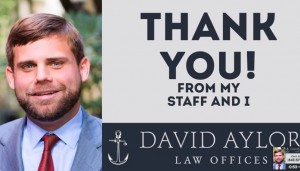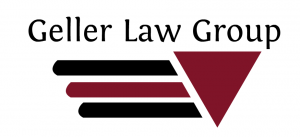 Did someone drop an extra dose of stupid in the drinking water of Charleston, S.C., attorney David Aylor?
Did someone drop an extra dose of stupid in the drinking water of Charleston, S.C., attorney David Aylor?
If the name doesn’t ring a bell, let me attach it to an incident: On Saturday in North Charleston, police officer Michael T. Slager shot dead a citizen of that city, Walter L. Scott. Slager claimed that he stopped Scott for a broken tail light and then shot and killed Scott when Scott tussled for the officer’s Taser.
Aylor was the criminal defense lawyer for the cop, and said he believed that Slager followed the proper procedure.
But then a video surfaced that showed Slager shooting the unarmed Scott as he was running away. It looks like little more than an execution as he shot eight times at the back of the the fleeing Scott, hitting him five times.
Slager was arrested for murder. And his lawyer — Aylor — dumped him.
But Aylor didn’t just dump him. No, sirree. What he did was dump him publicly, thereby implicitly violating the attorney-client privilege and calling his client a liar. Lawyers don’t do that.
Lawyers don’t get hired for the purpose of violating confidences. If Slager lied to his lawyer in private about the facts, that is between client and lawyer, and nowhere else.
In response to being swamped with press calls after the video came out, Aylor could have said two things. First, he could have said “no comment.” Period. End of story.
Alternatively, if he was sick of being bombarded by press calls, he could conceivably have said that a change in counsel was in progress, and he obviously couldn’t say more. No one would know why. There are plenty of reasons for a change in lawyers, and few would think anything of it.
But instead, Aylor gave an interview to the Daily Beast. And after superficially claiming that he couldn’t discuss the matter, then proceeded to piss on the guy that came to him for legal help:
I can’t specifically state what is the reason why or what isn’t the reason why I’m no longer his lawyer. All I can say is that the same day of the discovery of the video that was disclosed publicly, I withdrew as counsel immediately. Whatever factors people want to take from that and conclusions they want to make, they have the right to do that. But I can’t confirm from an attorney-client standpoint what the reason is.
So there it is, he told the world that
1. He was the one dumping the client; and
2. That he was dumping the client right after seeing the video.
In other words, I think he called his client — to whom he owed a duty as an attorney — a liar, since the video likely didn’t match the story he was allegedly told. There is no other way I can see this.
And in case anyone might think this was a single, moronic slip of the tongue, he did it again later in the interview:
I think that there’s been a release of information that was not public information at the time, or not discovered at the time at least to any knowledge of mine or anyone else publicly— at least the video. I can’t comment on the specifics of what I think the video says. I’m not going to analyze the video, but again … the video came out and within the hours of the video coming out, I withdrew my representation of the client.
So Aylor intentionally threw his client under the bus.
Now his client may be a murderer, and may be a monster and may be all sorts of mean, nasty things about which you will see protests in the coming days/weeks/months.
But the lawyer’s allegiance is to the client that came to him for help. If clients can’t speak to lawyers about problems then they can’t get the legal assistance they need. We have that lawyer-client confidentiality code for a reason. And it doesn’t get violated just because the lawyer suddenly has a reviled client.
Aylor was completely unprepared for the press. When he should have said nothing, he gave this comically contradictory answer to a simple question:
How did you come across the video?
I can’t say where I saw it first. I first became aware of it via the media. In fact, a reporter sent it to me via e-mail.
Did he think that talking to the press was going to be a neat bit of self-promotion so that the could add another little line to his website about all the press he has been in? Methinks that is going to backfire big time, as I think most lawyers are appalled by what he did, and some of them just must might want to write about this.
This isn’t the first time I’ve written about a lawyer disclosing confidentially obtained information in a high profile case. I wrote about this five years ago when one of the lawyers being interviewed by Lindsay Lohan for a criminal defense thought it would be great to get some free press for himself by blabbing to the press about his meeting with her.
Incredibly, there is actually another comic note to all of this. It seems that Aylor put a video on You Tube boasting about being named the top lawyer in Charleston by City Paper (an alternative free weekly).
Don’t ask me how such a stupid survey could be done, but here’s the kicker: Aylor posted that little boast of being best on April Fools Day.
Elsewhere:
The Unwashed Advocate:
..giving an interview to the Daily Beast as an aggravating condition necessitating elevation to Interstellar Capital Dipshittery.
Simple Justice:
What could Aylor possibly have been thinking when the Daily Beast called and said, “talk to us, bro. It’s gonna be sweet!” The only rational conclusion is that he saw his 15 minutes of fame coming to an end, and wanted to get his brand in there before the name David Aylor disappeared forever. This was an opportunity to spin his involvement from lawyer for the devil to good guy who wouldn’t be caught dead standing beside the murderous liar.
Noah Feldman @ BloombergView:
[Aylor had] an ethical obligation as a lawyer to defend his client, not to abandon him or harm him by a public act of distancing. Yet in an interview with the Daily Beast, Slager’s lawyer did just that, dropping his client like a hot potato and strongly implying that Slager either had been set on a course of perjury or was simply too repulsive to represent.
…
It’s hard to avoid the implication that Slager hadn’t told his lawyer what really happened, and that lawyer withdrew at least in part because he thought his client had misled him.
Gamso for the Defense:
OK, yeah he essentially rolled on his client.
Yeah, he violated attorney-client privilege in substance if not in form while denying that he was doing that.
Yeah, he made an ass of himself in public, but that’s what comes from media whoring when there’s nothing to back…
Updated 11.11.15: Did Aylor really cut and run? Or was there another reason…
 If you use Gmail, then Google is reading your email. You may not like that fact, but that is reality. It isn’t private.
If you use Gmail, then Google is reading your email. You may not like that fact, but that is reality. It isn’t private.
